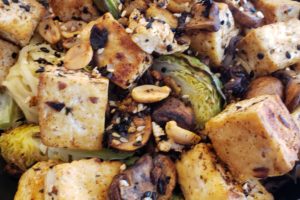Evidenced-based supplements for training like an athlete
Protein: Commenting on protein supplements can be complicated because there are so many differ types and brands of protein out there. In addition, some brands have been found to contain toxic heavy metals due to contaminated ingredients. In some cases, companies fix the problem, others don’t. Generally, I recommend a pea and brown rice protein blend containing around 20g of total protein and 1.5-2g of leucine.
EAAS: For those times when you don’t want to have a meal or are going to consume a low protein meal, essential amino acid powder can play an important role. A serving should contain over 2g of leucine. Those brands not breaking down their amino acid profile are typically trying to hide something in their supply or quality control process and should be avoid. More often than not, a quality product can be recognized for what is on the nutrition facts and ingredients panels than based on the labeling on the front of the container.
Creatine: Those looking to improve their strength should consider supplementing with 5g of creatine monohydrate a day. This is one of the most studied supplements in the world and has been proven time and again to be effective and safe. Vegans may get a benefit boost to their generally lower baseline levels. Some people may get some mild diarrhea when first starting on creatine. This can easily be fixed by splitting the dosage into divided servings throughout the day such as 2.5g in the morning and then 2.5grams for lunch or dinner.

B-Alanine: Beta-alanine, a non-essential amino acid has been shown to improve performance during high-intensity physical activity. By what mechanism, you might ask? Well, when we exercise our body produces energy and a byproduct of that production are free radicals. Free radicals are unstable and result in oxidative damage to our tissues. If we have good amounts of beta-alanine, our body produces more carnosine, an important antioxidant that stabilizes the free radicals produced during exercise. This leads to increased performance and decreased fatigue. Like with creatine, because vegans tend to have lower levels of carnitine, vegans are more likely to benefit from supplementation. Most people will benefit from 4-6g per day.
L-citruline: Supplementation increases the levels or arginine, an amino acid that boosts the production of nitric oxide, resulting in better ability to dilate our blood vessels resulting in improved blood flow. Due to the way we digest L-citruline, it’s actually better for boosting levels of arginine and nitric oxide than taking arginine itself. The reason is that as our blood vessels open up and we get more blood flow to muscles, our performance improves. Shoot for 6-12 g per day taken roughly an hour before you exercise.
For those looking for some delicious high protein vegan recovery recipes check out my Tofu Steaks with Sticky Rice and Spinach Salad or Soba Noodles with Shiitakes and Tofu recipes
Sources:
Rogerson D. Vegan diets: practical advice for athletes and exercisers. J. Int. Soc. Sports Nutr. 2017 :14.
Kreider RB, et al. International Society of Sports Medicine position stand: safety and efficacy of creatine supplementation in exercise, sport, and medicine. J Int. Soc. Sports Nutr. 2017. 14, 18.
Hickner RC, et al. Effect of 28 days of creatine ingestion on muscle metabolism and performance of a stimulated cycling road race. J. Int. Soc. Sports Nutr. 2010. 7.
Trexler ET, et al. International society of sports nutrition position stand: Beta-Alanine. J. int. Soc. Sports Nutr. 2015. 12:1-14.
Maught RJ, et al. IOC consensus statement: dietary supplements and the high performance athlete. Br. J. Sports Med. 2018. 52:439-455.
Kersick CM, et al. ISSN exercise & sports nutrition review update: research &recommendations. J. Int. Soc. Sports Nutr.2018. 15.
Winjnands KA, et. Al. Citruline a more suitable substrate than arginine to resport NO production and the microcirculation during endotoxemia. PLoS One. 2012. 17.







